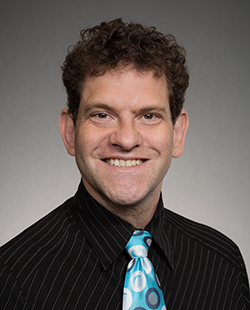Personal Statement
My research focuses on strategies to improve pediatric mental health care quality, such as increasing measurement-based care–the use of patient/caregiver reported data to inform clinical-decision making. I also study the impact of quality improvement interventions on pediatric mental health service disparities with the goal of developing interventions to prevent or reduce such disparities and improving mental health care quality for all youths and families.
My clinical expertise includes Dialectical Behavior Therapy and Cognitive Behavior Therapy for teens and families to address a variety of mood and anxiety disorders as well as behavior problems and parent-child conflict. I provide parent training and consultation for managing young children’s anxiety and behavior problems. I am fluent in Mandarin Chinese.

Personal Statement
I am a Professor and Licensed Clinical Psychologist in the University of Washington’s Department of Psychiatry and Behavioral Sciences and am Board Certified in Cognitive and Behavioral Psychology. I received my Ph.D. in clinical psychology from the UW in 2006 and returned to UW as a faculty member in 2010.
My research interests include problematic substance use (including alcohol and marijuana), posttraumatic stress disorder (PTSD), identity and self-concept, and resilience. My work focuses on investigating implicit (i.e., non-conscious or automatic) cognitive processes and processes related to self-concept and identity that contribute to the development and maintenance of maladaptive behavior and psychopathology. A second line of my work focuses on developing and increasing access to briefer, effective interventions for individuals who are trauma-exposed. Support for my work has been provided by the National Institute on Alcohol Abuse and Alcoholism, the National Institute on Drug Abuse, and the University of Washington’s Garvey Institute for Brain Health Solutions and the Addictions, Drug & Alcohol Institute. I also serve as a consultant for dissemination projects aimed at training community-based mental health workers in Cognitive Processing Therapy and other evidence-based treatment for PTSD in locally, nationally, and internationally.
Personal Statement
Dr. Lewy maintains a practice with immigrants and refugees at Harborview Hospital. Core practice specialties include assessment, forensics, disability, cross cultural psychology, and clinical child psychology. Core academic interests include anthropological and sociological perspectives on mental illness.
Personal Statement
My primary practice setting is inpatient psychiatry. I am involved with resident and medical student education and training.
Personal Statement
I have been a member of the department faculty since 1995. My research and clinical interests include 1) prevention and treatment of alcohol and drug problems among adolescents and young adults (with a particular focus on college drinking prevention), 2) prediction of initiation of drinking and trajectories of alcohol and substance use during emerging adulthood, 3) co-morbidity of substance use with depression, suicide, trauma, PTSD, disordered eating, and gambling problems, 4) evaluation of housing and treatment programs for chronically homeless and incarcerated individuals and 5) dissemination of evidence-based prevention and treatment approaches into clinical, school, and work-site settings. I have published more than 100 articles and book chapters on these topics.

Personal Statement
Dr. Daniel Krashin is an Assistant Professor at the University of Washington working in Psychiatry and Pain Medicine. He works with both inpatient and outpatient pain patients, clinics and hospital staff to collaborate on treatment of patients, but also works on improving systems of care delivery to benefit patients and populations across the continuum of care. Dr. Krashin has extensive experience working with underserved and vulnerable populations including the chronically mentally ill, recent immigrants, and HIV patients in the treatment of both psychiatric illness and chronic pain. He has lectured extensively and authored a number of publications in the areas of pain management, comorbid pain and psychiatric disorders, substance abuse in the setting of pain treatment, and pharmacology of opioids and other pain relieving medications. He works closely with residents and pain fellows and participates in teaching the future generations of psychiatrists, anesthesiologists, and pain providers. He is board certified in both Psychiatry and Pain Medicine.
Personal Statement
I am interested in mood and anxiety disorders and the intersection of these with chronic medical illnesses. My approach to treatment is integrative. Working within a cognitive-behavioral framework, I use many traditional CBT methods, including hypnosis, mindfulness training, and concepts from third-generation cognitive and behavioral methods.
Personal Statement
I have expertise in managing acute psychiatric presentations with research experience in studying neuroanatomy and the synaptic effects of schizophrenia. I have published in fields of neuroscience, schizophrenia, autism, and anxiety disorders. I also actively manage a telepsychiatry clinic based in eastern WA, and coordinate psychiatric management of emergency room mental health evaluations. I am very interested in the education of residents and fellows rotating on the consultation service, and participating in educational curriculum and recruitment committees.
Personal Statement
Jane Luterek, PhD is a psychologist in the PTSD Outpatient Clinic and the Addictions Treatment Center focused primarily on serving women Veterans at the VA Puget Sound Healthcare System, Seattle Division. She is a Clinical Assistant Professor in the Department of Psychiatry and Behavioral Sciences at the University of Washington and is licensed in the State of Washington. Dr. Luterek’s research has focused on understanding the psychological sequelae of trauma and mechanisms of change in therapy associated with Alcohol Dependence and PTSD. She has advanced clinical training in the treatment of Veterans with trauma related psychological sequelae (e.g. substance use disorders, PTSD, mood disorders, borderline personality disorder) and draws from a contextual behavioral theoretical background. Dr. Luterek has expertise in Acceptance and Commitment Therapy, Prolonged Exposure, Dialectical Behavior Therapy, and Motivational Interviewing, which heavily inform her clinical practices.








